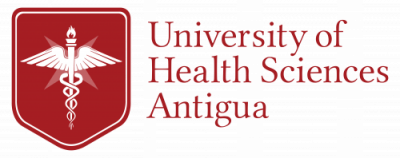The Disease Cowboy Rides Again
In 2011, I walked down the steps of a specially chartered flight into a small Pacific island nation that was in the grip  of an infectious disease outbreak that was sweeping the island, killing dozens every day, and threatening to overwhelm the limited local medical resources.
of an infectious disease outbreak that was sweeping the island, killing dozens every day, and threatening to overwhelm the limited local medical resources.
I was greeted by a sparkling white Toyota Prado which whisked me through traffic with blue lights and sirens to the ministry of health, where I was greeted by the president, minister of health, the countries lead physicians, and the emergency management team, all of whom were clearly exhausted and panicked. I saw relief in their eyes, because I was the expert, I was the person who would bring control to chaos, I was the disease cowboy!
Like me, you chose this career path because you care, because you want to make a difference in the world around you. One way to help you along this path, to make sure that you maximize every opportunity you are presented with, is by earning a masters of public health (MPH).
An MPH has the potential to enhance your career and career prospects as a medical student, resident, and later as a practicing physician in many different specialties. Because it has the potential to be value-added across your career, earning your MPH during medical school is the right choice for many whether you want to be a global disease wrangler or primary care physician serving the needs of a local community.
Want to Strengthen Your Residency Application?
Statistics on foreign and domestic medical graduates show that those with an advanced degree (i.e. an MPH, MS, PhD, etc.) have a better chance of matching into both primary care and specialty residency programs. Residency programs value the skills that come with having an advanced degree, such as a better understanding of the psychosocial dynamics of health, research and writing skills, presentation skills, and an MPH is widely recognized as one of the most valued in medicine.
Primary care residency programs particularly value the MPH. Primary care programs include family medicine, pediatrics, internal medicine, and to a lesser extent psychiatry, and obstetrics/gynecology. Foreign medical graduates applying to primary care programs with an MPH had a significantly higher chance of matching than those who did not.
Thinking of a Career in Preventative Medicine or Public Health? You Should!
Did you know that there are residency programs in preventative medicine and public health?
In addition to clinical rotations, like all residency programs, both of these specialties routinely have an academic year in which you earn an MPH degree. For those who already have their MPH, this year can generally be spent on elective rotations, such as international public health rotations in places like Thailand or other exotic locations. Not only does having an MPH prior to graduation make you more attractive to these residency programs, it can also make the residency experience more enjoyable and tailored to your career desires.
There are routinely more slots in both of these programs that are filled each year.
Compare that to fields like general surgery, which have many more applicants that spots. This means that pursuing residency training in preventative medicine or public health as a foreign medical graduate gives you the statistical advantage that is not found in other more competitive residency programs.
Plus, there are generally more jobs for preventative medicine and public health physicians than there are applicants. With an average salary of $210,000 per year for preventative medicine, and $180,000 per year for public health physicians, and very little call in either specialty, this is a true lifestyle specialty that easily competes with fields like dermatology for life-work balance.
Fancy a Career in International Health?
COVID-19, SARS, MERS, Ebola, leptospirosis, typhoid, dengue, HIV, and more. From local outbreaks to global pandemics, these outbreaks have shown us the need for more physicians, but also the need for physicians who specialize in international health.
I have spent my career as a global disease wrangler from the Caribbean to North America, Asia and the Pacific, and back again. I have travelled over a million miles, and have been on the front lines of fighting disease outbreaks the world over. In so doing, I have been privileged to work with amazing people from dozens of countries; eating their food, learning their languages and cultures, looking into their eyes and learning that they’re really not that different from me, bringing calm to hot zones, and loving every minute of it!
If you see yourself as a global citizen who has the desire to do good in this world, whether its fighting obesity and diabetes in the Pacific, or Ebola in Africa, a career in global health is right for you, and an MPH (along with your MD) can be your ticket to ride.
What MPH Specialty is Right for You?
The Association of Schools of Public Health (ASPH) defines five core disciplines of public health:
- Epidemiology
- Biostatistics
- Health Services Administration
- Health Education/Behavioral Science
- Environmental Science
Additional concentrations offered by many schools include:
- International Health
- Primary Care
- Maternal and Child Health
- Nutrition
- Public Health Practice/Program Management
- Biomedical Laboratory Science
- And others
Each specialty has its merits, and you should consider which most closely aligns with your career goals.
If you simply want to learn more about public health and how it applies to the prevention of disease and the practice of medicine in order to strengthen your application to residency programs, then I recommend you look at general public health programs that give you an overview of all of the core areas of public health practice, or those that focus in an area you have an interest in, such as international health.
However, if you want to pursue a career in global health, I strongly recommend that you pursue a specialization in epidemiology.
In my fifteen year of global health practice, it has been my background as a medical epidemiologist that has placed me in greatest demand by organizations like the US CDC, WHO, and others. MPH graduates in fields like primary care and maternal and child health are relatively common; whereas trained epidemiologists are much rarer and in demand.
The combination of your MD plus a graduate degree in epidemiology will make you a valuable asset to any organization, including those like Médecins Sans Frontières (Doctors Without Borders). Plus, if you are pursuing a residency in preventative medicine or public health, epidemiology is generally considered the most difficult of the public health fields in which to specialize, and will set you apart from other applicants.
Need Access to Student Loans? Consider the UHSA MD/MPH Program
UHSA is proud to partner with Walden University to offer a joint MD/MPH program of study leading to a respected, CEPH-accredited, and US regionally accredited MPH, that also provides access to US government and private student loan funds (for those who qualify). The refunded portion of the Walden MPH student loans can be used to pay for living and other expenses while an MD student at UHSA. The Walden portion of the program is completed entirely online.
Graduates of the Walden MPH program also qualify to continue with Walden to earn either a PhD in Public Healthor a Doctor of Public Health (DrPH) also online with short periods of on-site residency.
Want to Join the UHSA Family?
We would love to have you join the UHSA family. The world needs dedicated physicians now more than ever as we grapple with COVID-19 and other diseases.
In the United States alone, a June 2020 report by the American Association of Medical Colleges predicts a shortage of 139,000 physicians by 2033.
If you have the dream of becoming a licensed physician and bringing care to those who need it most, then UHSA can make that dream a reality! Reach out to our admissions team today.

